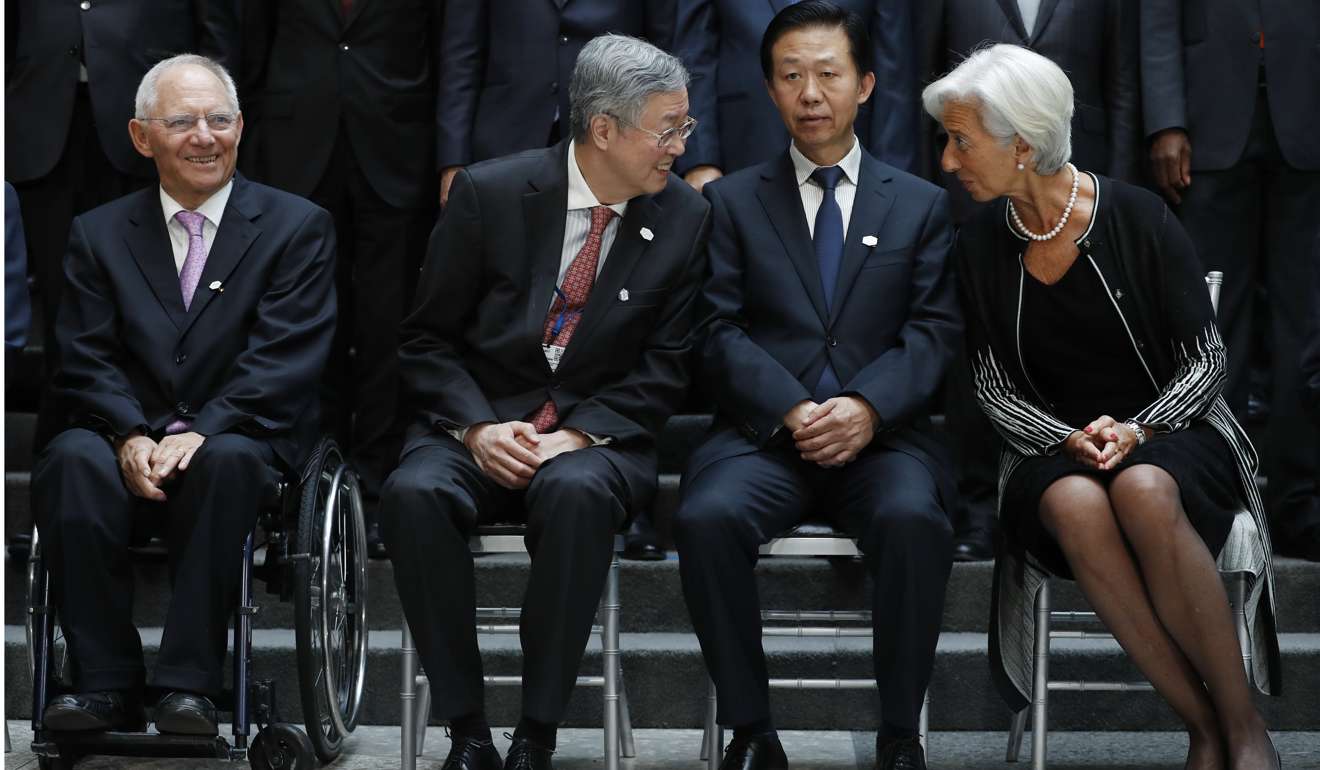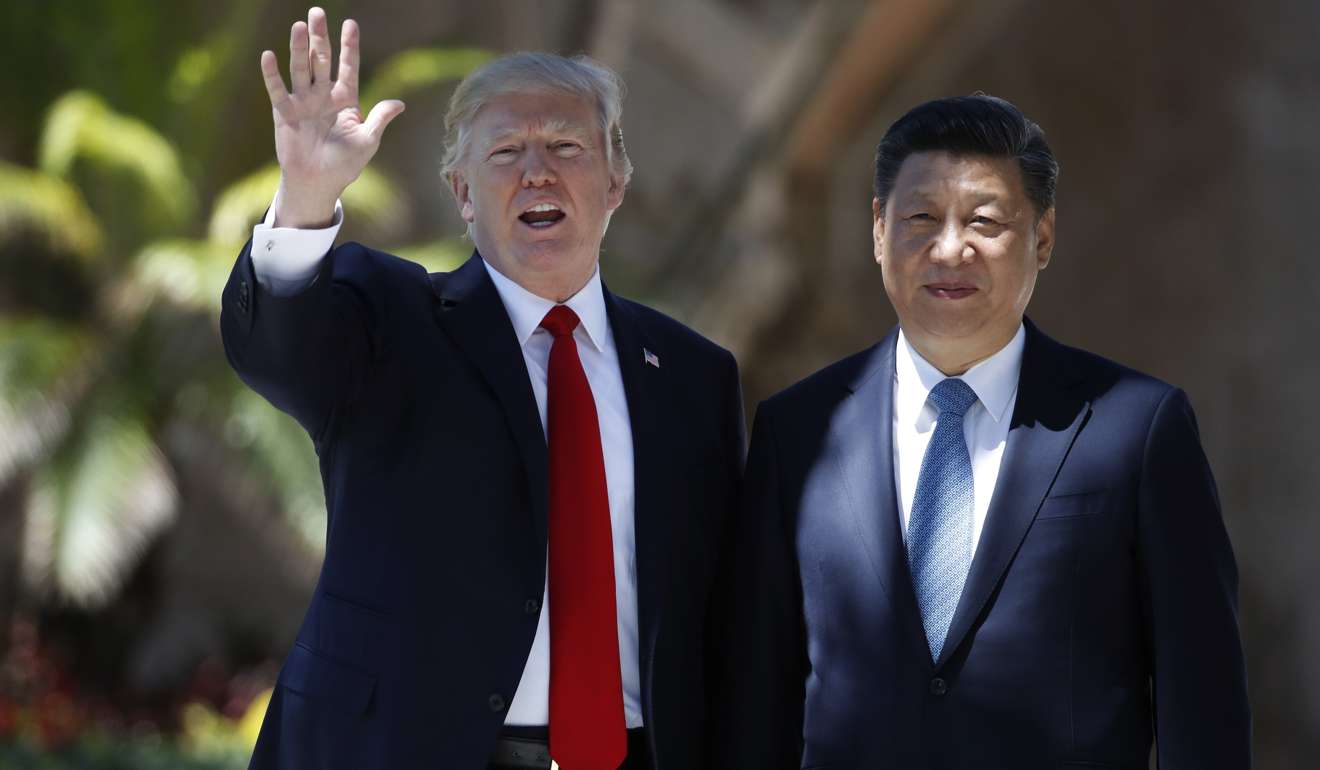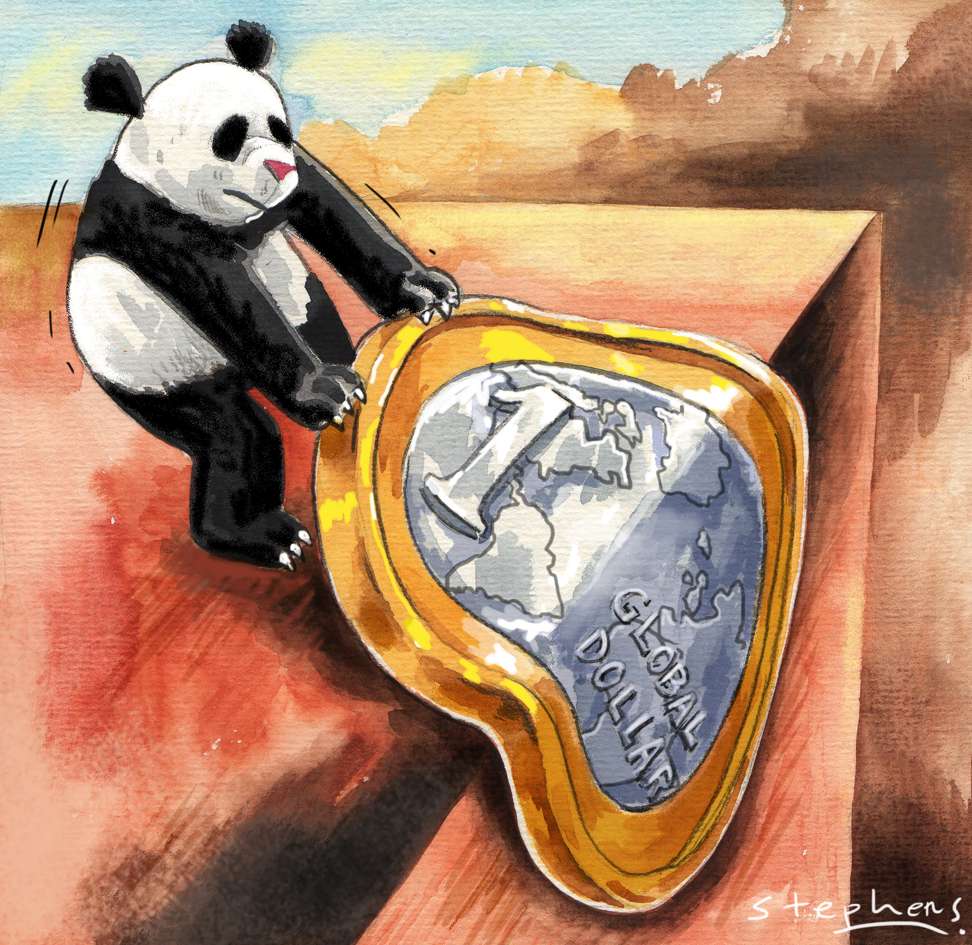
The US needs to recognise China’s vital role in saving it from financial ruin
Brian Moore says the key role China, as a holder of substantial US securities, played to stabilise the global economy should be acknowledged, and such positive conduct encouraged
Within the US political establishment, China is seen as the source of many of the ills in the American economy. Headlines and campaign platforms state that China’s currency manipulation has kept the renminbi artificially low and has devastated American manufacturing; China’s massive holdings of US debt has subjected Americans to the will of Beijing; and Chinese state-owned enterprises are setting their sights on American acquisitions that puts US national security at risk.
While there are elements of truth in this rhetoric, the perhaps more important story of China’s interaction with the global economy is too often glossed over.
How China has become America’s equal, as showcased at a Harvard forum
When the global financial system has been at risk of disaster, China has been a key partner, and at times served a critical role that helped pull the system back from the brink.
During the onset of the financial crisis in 2008, the US Treasury estimated that China’s holdings of US securities totalled a tremendous US$1.2 trillion (a symptom of China’s central bank needing to maintain the renminbi’s peg to the dollar and the need to invest its reserves somewhere safe). As the crisis grew more serious, the market was signalling to debt-holders to dump US paper.
A large move out of US government bonds could have sparked a wave of short-selling that would have driven up the cost of US borrowing, and this increase would have hamstrung Washington’s ability to fund the US$800 billion stimulus package that eventually injected liquidity and jump-started the global economy.
The Chinese declined to take part in the Russian operation to undermine the US financial system
“If they had sold off Treasuries, converting the proceeds to another hard currency or buying up commodities or other real assets, it would have shot US interest rates back up and put downward pressure on the dollar and upward pressure on the renminbi,” economist and former CIA East Asia specialist William Brown said. “This could have been a disaster for us, especially if the move was calibrated to decrease confidence in the dollar.” Instead, China’s holdings of US debt increased throughout the crisis and thereafter, probably to the dismay of hawkish, anti-American factions in China.
“If they wanted to punish us, that would have been a great time to do it, although it would have come at a cost to Chinese exporters and holders of US debt,” Brown said.
As the crisis turned to the government-sponsored enterprises Fannie Mae and Freddie Mac, word came from Wall Street that several Chinese banks were withdrawing large sums from the money market funds, pulling back on secured overnight lending, and shortening the maturity of their holdings of Fannie and Freddie paper. At the time, the two corporations owned or guaranteed over US$5 trillion in residential mortgages and mortgage-backed securities, about half of the total mortgage market. The Chinese alone owned hundreds of billions of their US$1.7 trillion in debt. Fannie Mae and Freddie Mac were the definition of “systemically important”, and the impact of their collapse would have been felt from Wall Street to rural America and abroad.

Zhou Xiaochuan (周小川), China’s central bank governor, in a phone call with then undersecretary of the Treasury for international affairs David McCormick, confirmed the reports, but emphasised that the moves were not a top-level order, but made by mid-level bureaucrats and various financial institutions, and that the Chinese leadership would be giving guidance for them to not pull back from the money markets or from secured lending.
Wang Qishan (王岐山), then the vice-premier in charge of China’s financial and economic affairs, was also in frequent contact with Treasury secretary Henry Paulson. Wang, along with Zhou, trusted American assurances that the two corporations wouldn’t be allowed to fail, and the Chinese “held on to this paper at a crucial time in a shaky market”. These accounts are well documented in Henry Paulson’s On The Brink.
American interlocutors would be wise to speak of the high points of China’s actions on the international stage and signal that respectable behaviour does not go unnoticed
The move emphasised China’s appreciation that the survival of American economy was of vital importance to the global financial system. It also highlighted the deep and trusting relationship between Chinese and American officials at the time that was critical to preventing a collapse.
These actions were not popular. As seen by the selling off of US securities, the actions ran counter to short-term market signals. A few months later, in March 2009, then premier Wen Jiabao (溫家寶) stated at a news conference that he was “a little bit worried” about the safety of Chinese assets in the US.
The case can be made that China’s actions ultimately served the interests of China, and that a failed global economy would have been of no use for a GDP-crazed Beijing. That assessment is correct.
But China has its own geopolitical interests, ones that could have benefited from a global loss of confidence in America’s leading role in global finance.
This was an opportunity not lost on America’s adversaries. Detailed in former Treasury official Juan Zarate’s Treasury’s War, at the height of the financial crisis in the summer of 2008, Russian officials had made a top-level approach to the Chinese suggesting they band together to sell their holdings in Fannie Mae and Freddie Mac. Had the Chinese gone along with the Russian plan, the sell-off would have forced the US government to use its emergency authority and spend massive sums to keep the enterprises alive, straining its capacity to save the many failing institutions that followed. Additionally, this heavy selling could have created a dramatic loss in confidence in Fannie Mae and Freddic Mac, alarmed the capital markets, exacerbated the global economic crisis, and sparked a run on the dollar.
The Chinese declined to take part in the Russian operation to undermine the US financial system.

Why the US needs China to succeed, and vice versa
The current US-China relationship is in a period best described as a “reset”. The Trump administration, in its view, seeks to right the ship that has veered off course.
Economically, the largest challenge is addressing the dire need to restructure both the American and Chinese economies. This aim requires the Chinese to increase consumption and decrease net exports, while the US does the opposite. This inherently includes a devaluation of the dollar and an upward revaluation of the renminbi. Geopolitically, the issues of North Korea and the South China Sea loom large, and the policy option of kicking the can down the road no longer appears to be on the table.
Brian Moore is a fellow at Pacific Forum, Centre for Strategic and International Studies


